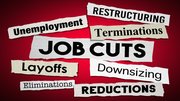Article
Grocery stores stepping into the financial services world
Recent additions to Kroger's financial services product line see the company moving into territory traditionally dominated by banks.

December 22, 2008 by James Bickers — Editor, Networld Alliance
Kroger, the largest pure grocery chain in the United States, has offered a private-branded credit card for five years, but newer additions to its financial services product line see the company moving into territory traditionally dominated by banks.
Some of those additions include mortgages, renter's insurance and even pet insurance, all advertised prominently at the checkout counter through new POP displays.
Kroger is one of a handful of large retailers that are experimenting with financial services as a way to ensure customer loyalty and bring in some additional revenue in the process.
"Most large supermarket chains have some form of co-branded card offering," said payment industry consultant Tom Daily. "However, to my knowledge, Kroger has been the most aggressive at creating a family of financial products which they market at the point of sale."
In the case of Kroger, the products are a combination of partnerships with other companies — life insurance provided by Garden State, home equity loans from Charter One — and privately held operations like KPF Mortgage LLC, which fulfills the retailer's home loans.
Kroger would not return phone calls seeking comment on this story.
Do customers want financial services from their grocery?
Billy Hardison logs a lot of miles on his car as a concert promoter in the Midwest, moving from one show to the next to set up and tear down band equipment and stages. He's a dedicated user of his Kroger credit card, thanks to the 15-cent-per-gallon discount it nets him at the pump. But he's not convinced he wants to get a mortgage from the same place where he gets milk and bread, whether or not the loan ultimately ends up with another lender.
"It's not that I wouldn't trust the security of the loan," he said. "I think I wouldn't trust their ability to service the loan. I wouldn't say that it lowers my opinion of Kroger, but it does raise an eyebrow."
Brian Ross, general manager of retail analytics firm Precima, said the only reason the concept works at all is the strong relationships consumers have with "their supermarket."
"You wouldn't think that people would want to get their mortgages from a grocery," he said. "These companies have been able to do it successfully only because they have built up so much trust and brand credibility with their customers."
Two other retailers of note that have dipped their feet into the waters of financial services are Tesco in the U.K., and Loblaw's in Canada. In July, Tesco bought the remaining 50 percent of Tesco Personal Finance, which had been a joint venture with the Royal Bank of Scotland. Loblaw's "President's Choice" financial services, which include banking, investments and loans, is run via a partnership with CIBC.
Ross said Tesco is an example of customer demand driving the addition of the services.
"Tesco learned so much about their consumers and built such strong trusting relationships that their consumers essentially told the company what their needs were and asked Tesco to help," he said. "This led to the Tesco Club strategy, including financial services, and other privately branded extensions such as baby products and wine."
As a shopper, Hardison said he thinks Kroger getting into finance is an example of a company spreading itself too thin. "But on the other hand, they probably have their hands on just as much collateral as, or maybe more than, many of the banks out there these days," he said.
 ChatGPT
ChatGPT Grok
Grok Perplexity
Perplexity Claude
Claude





